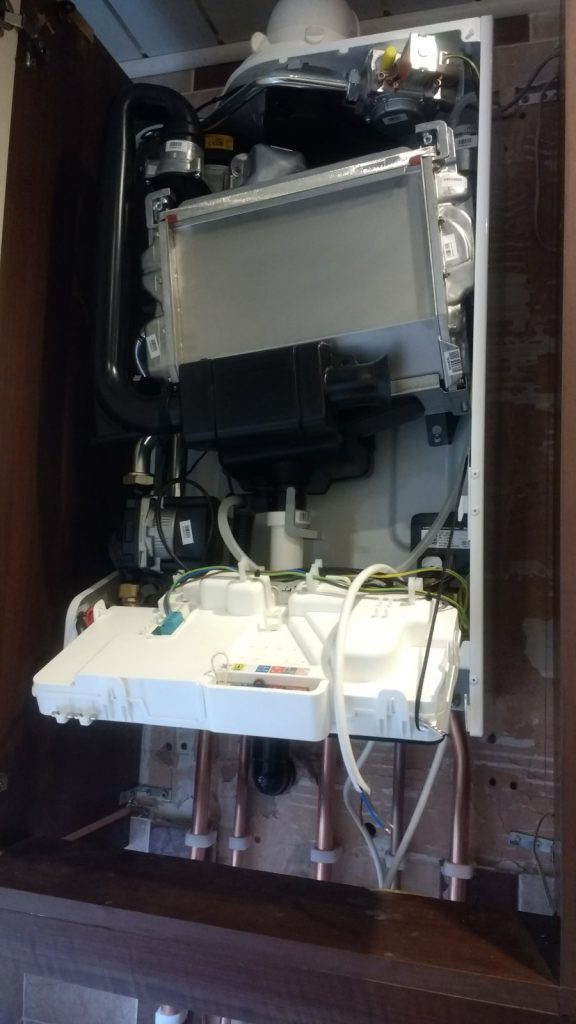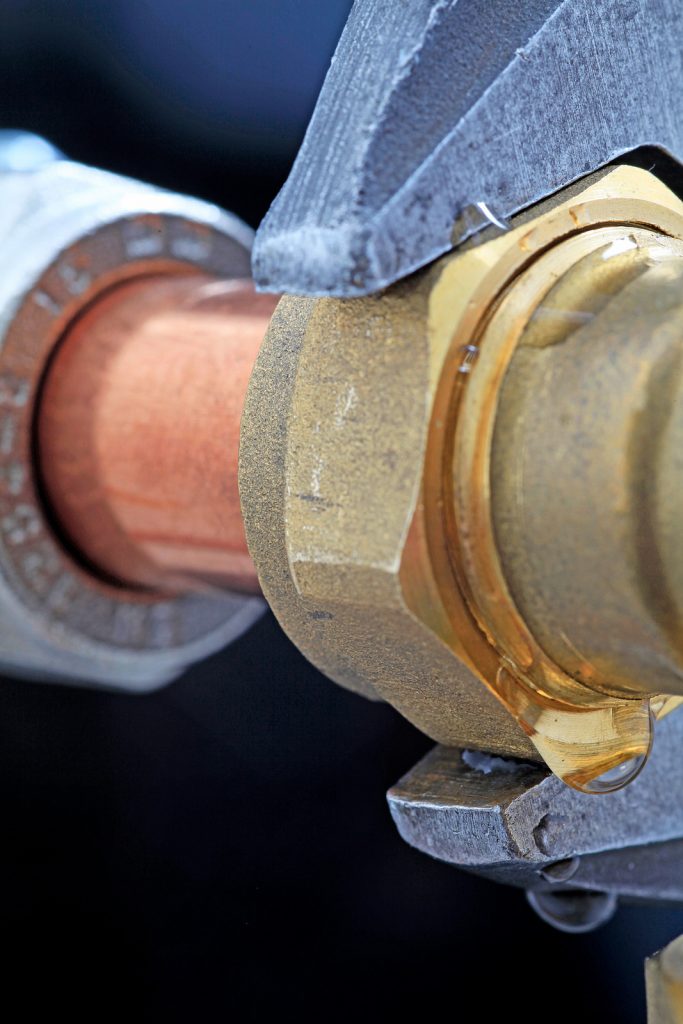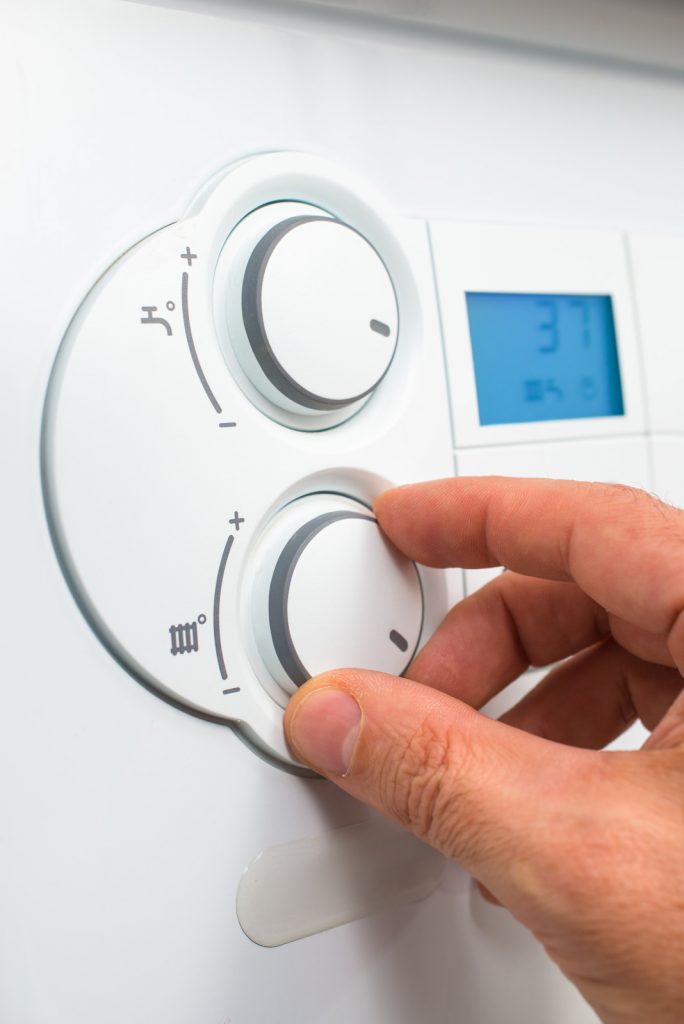During a harsh winter, we use the boiler for almost the whole 24 hour period and this puts it under strain, especially when it’s more than 7 years old. It’s then that you realise how much this white box can affect your everyday life and why you should keep it maintained better.
Signs of a broken boiler
- Unusual smells from the boiler
- Strange noises
- Soot and staining around the boiler
- Constantly high or low boiler pressure
- Blockages in the system
- Boiler leaks
- Boiler not heating up properly

You pay little attention to the boiler until it breaks down and you are suddenly without heating and hot water. Before the boiler develops a fault that requires a professional to sort out, there are usually warning signs before it’s too late. If you notice these signs early enough, it could save you from more costly and timely repairs later on.
1. Unusual smells from the boiler
Boilers can sometimes smell bad when something inside them goes wrong. Gas is the most obvious smell that is detectable and this can come from anywhere on the installation, not just the boiler, including the pipework and other appliances such as cookers nearby. This obviously needs to be investigated straight away and rectified.
But you may also smell a burning odour if a part within the boiler has become faulty due to overheating or water seeping into the casing, maybe from the boiler flue. Electrical wiring for the many parts becoming frayed or disconnected can also cause burning smells from the boiler.
2. Strange noises from the boiler
Like banging or hissing. If these are not coming from within the boiler, it would be in the pipework and usually not to worry about too much unless you see water stains. But noises coming from within the boiler, such as whistling or clanking, that are not the usual sounds it makes when it’s turned on and heating, are not good signs and even though it may be working at the moment, it could break down at any time.
Try to find out when these different noises occur: when you turn on the central heating? Or the hot water tap? At a certain higher temperature? This information will help you when searching for help and if needed will also help the engineer.
3. Stains around the boiler
You may notice signs around the boiler before it breaks down such as staining around the appliance. When a boiler is not functioning correctly, its fumes are not as clean, so staining may be present around the flue pipe.
You may also notice sooting around the boiler or on the wall or ceiling directly above. If you can see the flame without removing any casing, you will notice a yellow flame which means it’s not burning correctly. A proper flame should be strong blue.
4. Boiler pressure needs to be at the correct level
The pressure gauge needs to show the right level, check with your boiler manufacturer’s instructions but is usually between 1 bar and 1.5 bar. If it’s showing less than this, you may need to refill the system with water and the boiler manual will show you how to do this. Not enough water means there could be a leak somewhere in the system or the expansion vessel within the boiler may need to be checked.
The boiler needs to work harder putting a strain on it. On the flip side, if the pressure is too high, then the system will need to release some of it which can be done by bleeding the radiators or air. Once you’ve done this and the pressure is still high, one of the boiler parts may be faulty and need to be replaced. Better to call in a professional earlier to do this than later.
5. Frozen pipes causing a boiler blockage
A common occurrence in winter when temperatures dip below freezing, the condensate pipe can get blocked with the water inside it being frozen solid. This means no water can be drained away so the safety mechanism shuts the boiler down.
If you have easy access to the outside part of the condensate and the pipe isn’t insulated in any way, it may be a good idea to pour some hot water onto it, especially the end of the pipe to melt the blockage. If after a few attempts this doesn’t work, call an engineer to investigate and fix.
6. Leaking boiler
Leaks within the boiler will cause water to collect underneath it. Look out for these because initially, the boiler may continue working as there is still enough water in the system. But leaving it will ultimately cause the boiler to shut down. The problem with internal leaks means other parts which aren’t faulty can be damaged with the water seeping onto them before trickling out of the boiler.
One leak can cause damage to more than one boiler part. You will likely need to call an engineer for this but to help them diagnose this issue correctly, try to spot exactly which pipe or area of the boiler the dripping is noticeable from.
My boiler is leaking water
High system pressure, poor installation, and leaks from valves and seals cause the boiler to leak water. Over time, corroded pipes and joints that have become loose are common causes of leaks within the appliance. Any sign of a leak from the boiler requires the attention of a heating engineer.

Common causes of a leaking boiler
- Boiler pressure is too high.
- Corroded pipes.
- Loose joints.
- Valve leaks. Especially the temperature and pressure relief valves.
- Poor installation.
- A damaged heat exchanger.
- Leaks from seals, especially from the pump.
- Boiler age.
7. Boiler not heating up properly
You will notice over time how the system doesn’t heat up the house as quickly as before, even taking into account the colder temperatures. This could be radiators having sludge or debris in them or it could be parts within the boiler such as the pump that have run past their optimum. Although it may take time for it to break the boiler, it is definitely a sign that needs to be recognised.

Summary
Boilers can sometimes break down without warning but often there are signs before something is about to go wrong. If you detect any of the above signs, it is a call for you to act by looking into it more or calling in a boiler engineer to fix it.
Broken boiler repair
If your boiler has broken down, first check whether it is covered under the warranty. If so, contact the manufacturer who will send a service engineer to fix and replace any parts. If out of warranty, you can purchase boiler cover with repair companies that will send their engineer to fix the boiler. WIthout cover, you will need to find an engineer and pay for parts and labour yourself.
Qualified heating engineers can fix boilers and also install new boilers for you. They are allowed to work on the internal parts of a gas boiler, unlike a plumber that isn’t qualified to do so. Both heating engineers and plumbers can install non gas related pipes, fix water leaks and change radiators.
If you feel you need the services of a local gas engineer, the BoilerGuide offers a service to find one in your area. Check out the following link (affiliate).

*The information in this article should be used for general guidance only and not as financial or health advice. Full details are on the link in the footer to our disclaimer page. Always discuss your requirements with a competent and suitably qualified professional before undertaking any work.
Affiliate disclosure
Heatology.co are participants in a variety of affiliate schemes which help fund and run this website, visitors who follow our links and purchase a product may earn Heatology.co a commission. The money we make from affiliate marketing costs you nothing but keeps us online, so thank you for your continued support!
